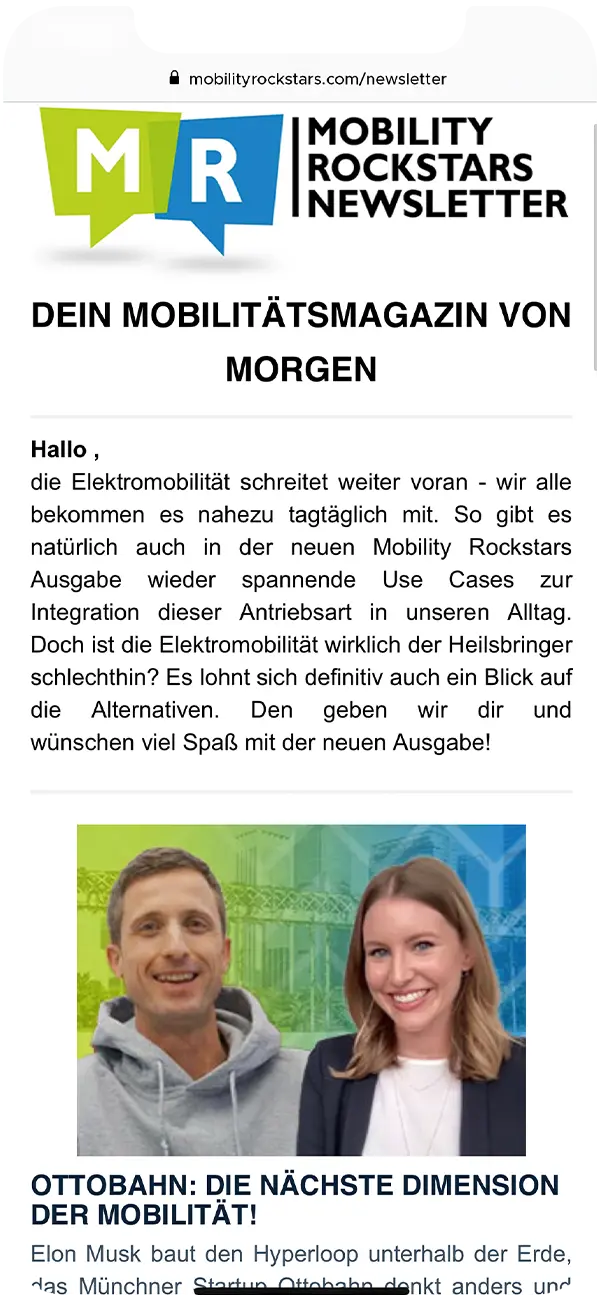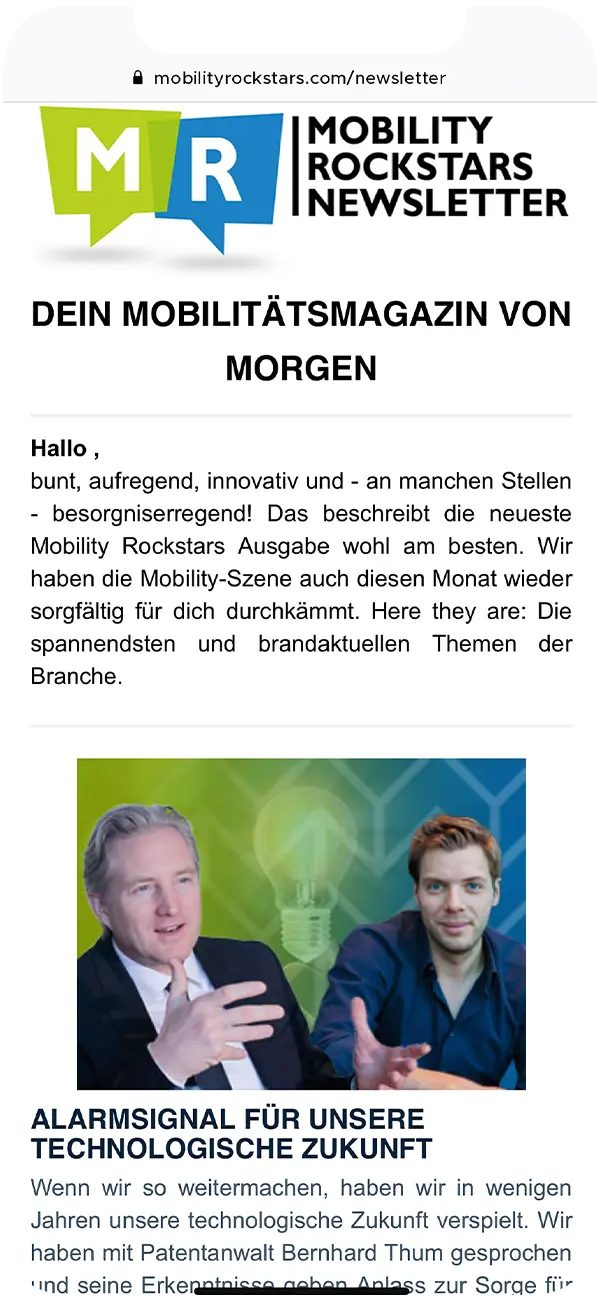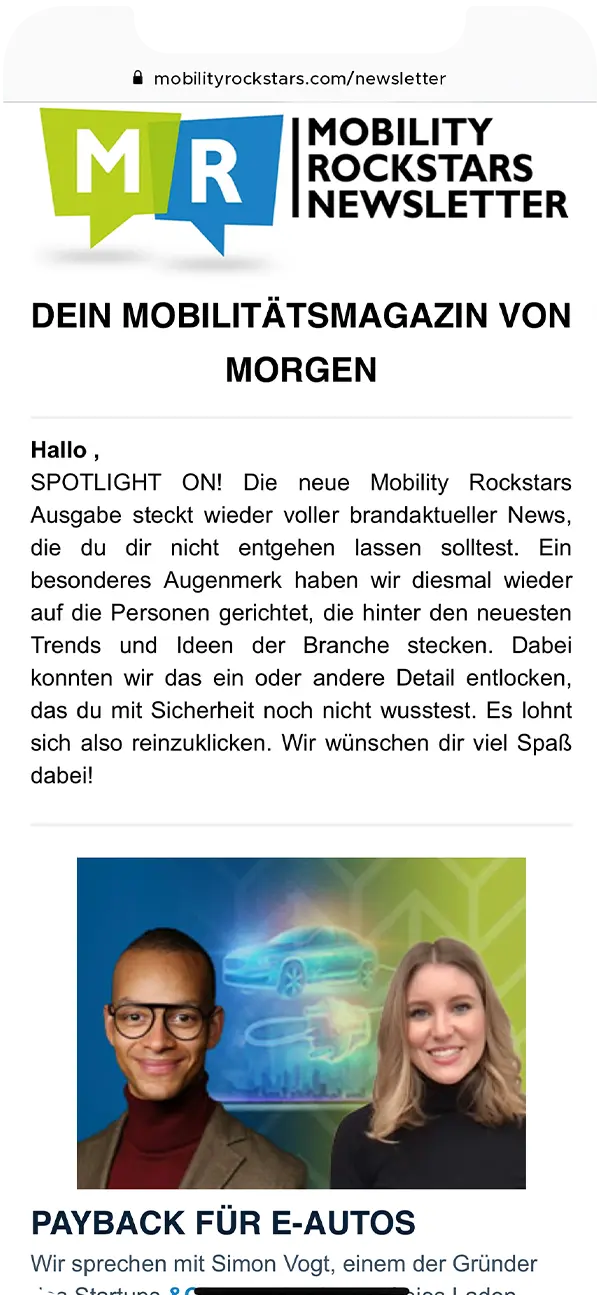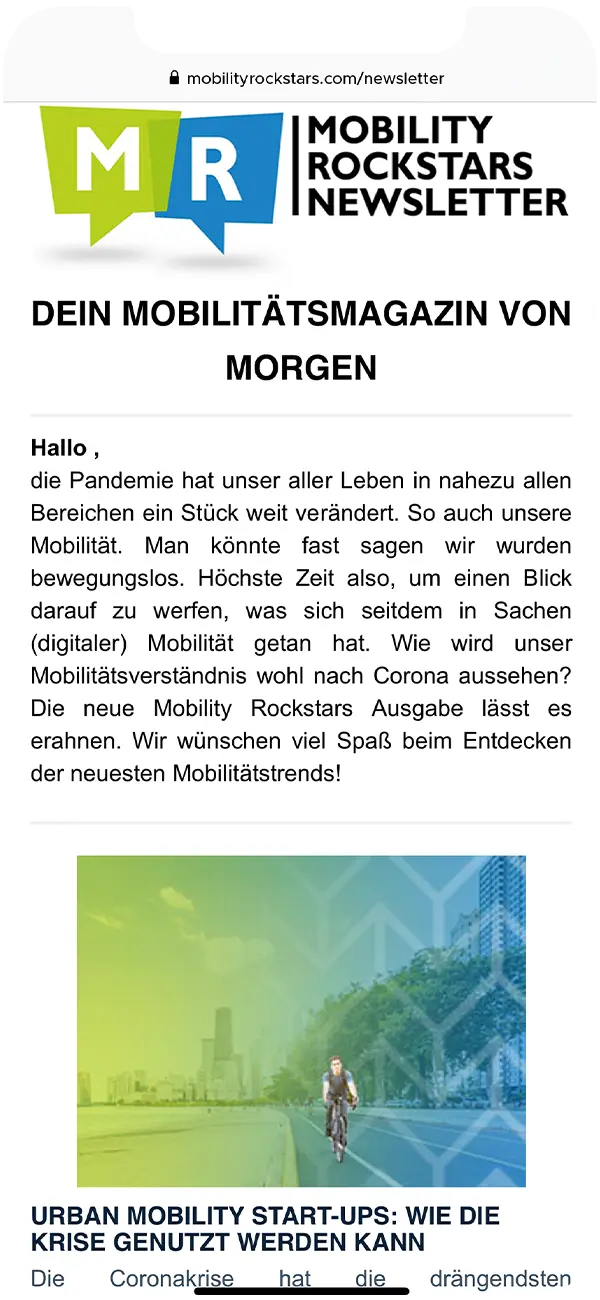Embedded Systems & Android Automotive: This is what life is like as an IT student trainee
If you are studying (business) computer science, electrical engineering or a related STEM subject, you will hardly be able to avoid working as an IT student trainee. This also makes sense, because you will not only gain your first practical experience - apart from previous internships - but you can also make your first contacts in industry. Not infrequently, this goes hand in hand with a job later on, and quite incidentally, the bank balance, which is unfortunately all too often notoriously tight during the study period, can also be improved.
To give you a better idea of what it's like to work as an IT student in the areas of Embedded Systems and Android Automotive, we've taken David - you can also contact him at see in the video of Noel Lang, in which Noel takes a look around Cognizant Mobility to learn what an embedded systems developer actually does. We are now focusing more on the aspect of working student activities and letting those who can best explain to you what that looks like, namely our working students, have their say. After Amelie and Nelson, it's David's turn to take you into his everyday life - have fun!

Marc
Marketing Professional
14.07.22
Ca. 15 min
Embedded Systems Working Student – The Interview
Mobility Rockstars: Hi David! Would you like to introduce yourself briefly so our readers know who you are?
David: Yeah sure! I’m David, 24 years old, and I’ve been a working student at Cognizant Mobility for over a year now. I studied Business Informatics in my Bachelor’s degree and am now doing my Master’s degree in Applied Informatics, with a focus on Data Science. Here at Cognizant, I’ve already been in charge of a few projects, just speaking in general terms.
Mobility Rockstars: You mention the focus on Data Science – as opposed to…?
David: In fact, there would still be the focus of business informatics in a hybrid system, where you also have business management parts in it. There’s also Internet Engineering with a focus on web apps and then some.
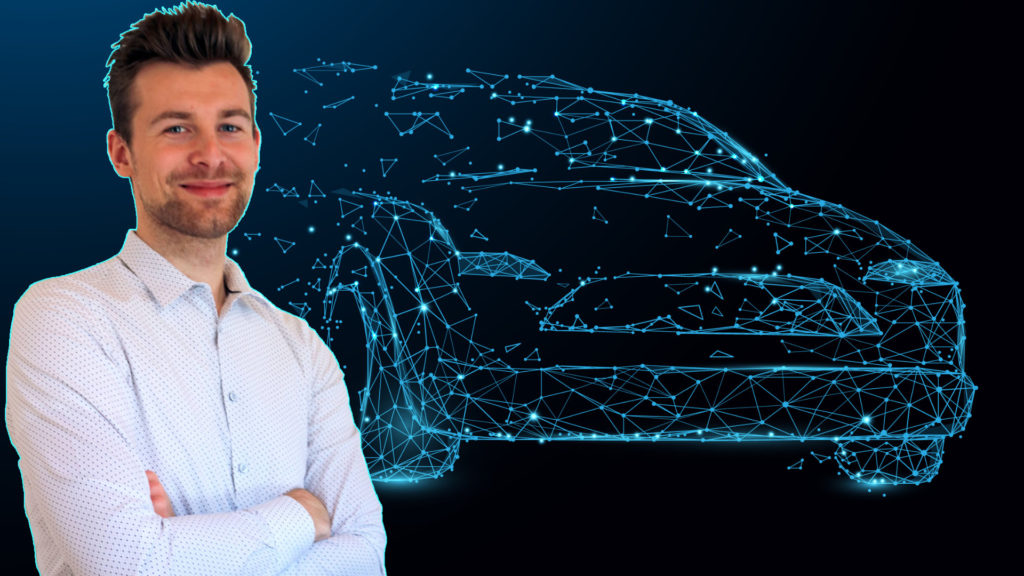
Mobility Rockstars: And why did you decide to focus on Data Science?
David: That came out of my studies. Because I studied business informatics, there was also a bit of data science involved, because that is part of this hybrid subject. I then simply realized that this was interesting and fun and decided to go down this route and take this as a focus in my master’s degree.
Mobility Rockstars: So now you’re working on your master’s?
David: Exactly. In two semesters, I’ll write my thesis, most likely in the field of data science or big data, or maybe embedded systems – that’s not set in stone yet, I don’t want to commit myself one hundred percent. You always look a little bit at how it fits and what topics are currently being offered. It’s always a bit spontaneous.
IT working student – Why does it make sense?
Mobility Rockstars: And why exactly do you decide to work as an IT student trainee? Is it mainly about applying theory in practice to get a foot in the door for the future, so to speak?
David: Exactly, you’ve actually already summed that up well. On the one hand, it’s about gaining practical experience, which is already a benefit for oneself and is also appreciated if one can already do something. And of course you also want to earn something!
Mobility Rockstars: Is it essential to work as a student trainee, is it mandatory?
David: No, you don’t have to, it’s completely voluntary. I do my – ideally – 20 hours as a working student. It always depends on the workflow at the university, but if it’s possible, I do that and study at the same time.
Mobility Rockstars: So basically you have to go through the learning in half the time because you’re working 20 hours?
David: Yes, you just have to divide it up. Some adjust their study schedule a bit accordingly, but I just wanted to go through it in parallel, also to save time.
Mobility Rockstars: So at some point, the point came for you to choose to look for an IT work-study position. How did you go about doing that? Were you specifically interested in automotive here, or did you also look a little bit to see what was out there?
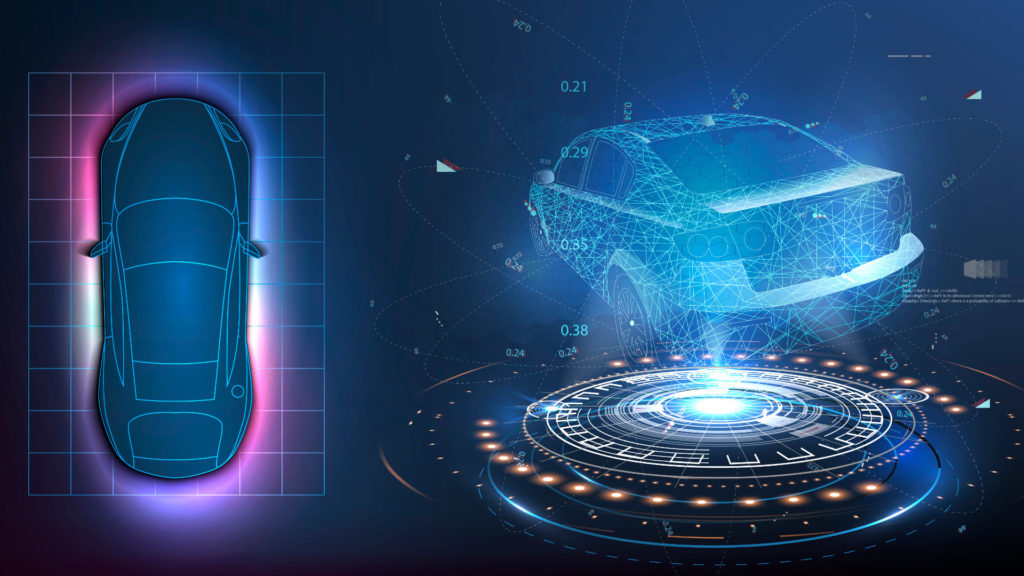
David: It was actually an interesting mix! Because in the bachelor’s degree you already had to complete a mandatory internship, and I was able to do that in the automotive industry at a well-known car manufacturer. After all, I’ve always been a fan of cars and thought, why shouldn’t I work in that field. I was also lucky to get an internship at the car manufacturer in question. After the internship, of course, I then looked around for the next step. I didn’t know Cognizant Mobility yet, but one of my professors then pointed out to me that a new branch was being built in Fulda, which would focus primarily on automotive software. That’s where I applied and also got along great with the branch manager Jens Schmidt. It all fit and then went really quickly, so my application to Cognizant Mobility was actually the only one I needed.
Mobility Rockstars: We’re still interested in the internship – is that something you would definitely recommend? What do you do?
David: Well, first of all I can say: An internship is always recommended, you should always definitely do it, simply to get to know the culture in working life. I also took the opportunity there to diversify my education a bit. Back then in my internship I also did management work, whereas now I do more software, but now I know both sides. For me, it simply turned out that I really like structuring in my work, which is something you notice a lot later on when it comes to software: you have to make an overview, a plan, thoughts on how to approach a problem and how you want to solve it. This can certainly also be used in project management: How do I get to my goal, how do I structure it? Sure, they are different areas, you need different soft and hard skills, so it was definitely good to get to know both sides.
Android Automotive in Fulda – The practical work as an IT student trainee
Mobility Rockstars: And what happened next for you after you started in Fulda in the embedded sector?
David: Well, especially at the beginning I also had a lot to do with hardware, for example with the distance warning system. Already then I wrote myself – without order, rather to facilitate the maintenance work and to automate something – a Python script, when I had some time, because I simply also like to program. After that I was involved in a customer project. You are also asked what you would like to do – of course, the whole thing also depends on the current project situation, but you do have an influence.
Mobility Rockstars: Can you describe a bit what your current project is about?
David: The project is specifically about Android Automotive – an operating system for cars. We have a customer who wants to have a specific app for their vehicle run on this board. To do this, we work on the Android board and have to connect a camera and various sensors so that the system can get and display the information. An example would be something like a head-up display – for this, the system needs information that it can display: How fast are you going, where are you going, where are you right now? You have to get that to the board, it has to be able to access it and make sense of the information.

Mobility Rockstars: And this info comes from different controllers in the vehicle, like the one that transmits the speed from the speedometer and so on?
David: Yes, exactly. We simulate it on the desk with some tools, but later it’s real vehicle data, of course.
Mobility Rockstars: A car is basically a cell phone on the move! Now Android Automotive is also a specialization – so it’s a chicken-and-egg question: Have you been involved in this before, or are you gaining experience in the project?
David: That came through the project. I didn’t have much to do with Android personally. So, privately involved with it once, but when the project came along, also with the background that the use of Android in vehicles is increasing – all the Silicon Valley companies are all pushing into the vehicle market, after all. Of course, we also want to build up expertise in this area so that we can meet the demand for such topics when other manufacturers want to integrate Android boards. It’s good if expertise already exists in the company.
MR: So it’s also a good time, given all the new developments, to be there from the beginning and become a frontline professional?
David: Yes, you could say that. You also have to see what remains and catches on, that’s always very interesting to observe, but the trend is going in that direction, so it definitely remains exciting. Either way, it doesn’t hurt to get into the topics! For example, we work with Android Studio, which Google provides, to write small test apps that we can then use to test and verify the functionalities on our boards. If you develop on the board itself, other tools are usually necessary, e.g. a so-called SDK from the provider of the boards. So you definitely work with exciting tools, although I currently primarily use Android Studio in combination with Visual Studio Code. I use various hardware and software tools to simulate the ECU messages. There, too, you have to find your way around a bit to find out how it all works – that’s where it becomes automotive-specific, so to speak.
Job as IT working student: These are the skills you should have!
Mobility Rockstars: That sounds really super exciting. Finally, could you tell us what skills you think are important for the job as an IT student trainee in addition to your technical expertise?
David: Well, patience is certainly a good quality. Aside from being patient with the technical issue, it’s often a bit bureaucratic with various stakeholders. If you need documentation, activation for systems or support, patience is not completely wrong. You also often find yourself in new topics, so curiosity is very helpful there, fun in discovering. It is always an advantage to think in a very systematic and structured way – you simply need that to approach problems coherently. And definitely humor: you work in a team, so good humor, openness and fun are very important for working great at the location. Because even if you sometimes work on something alone, you are always part of a team. That’s also the great thing here at Cognizant Mobility in Fulda: If you ever need help, you always get it directly and are never left alone, and above all you are treated at eye level.
Mobility Rockstars: David, thank you for the interesting insight! This has certainly helped our readers a bit in the decision-making process, and we wish you continued success and fun in your studies and your Master’s!
David: Thank you, see you soon!




